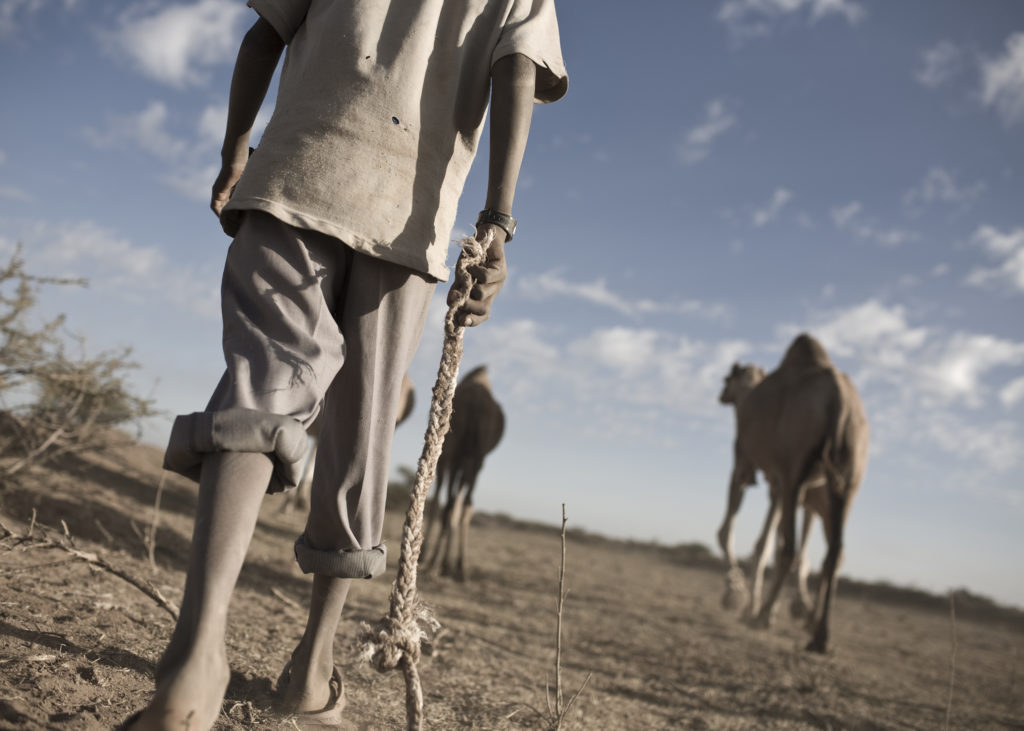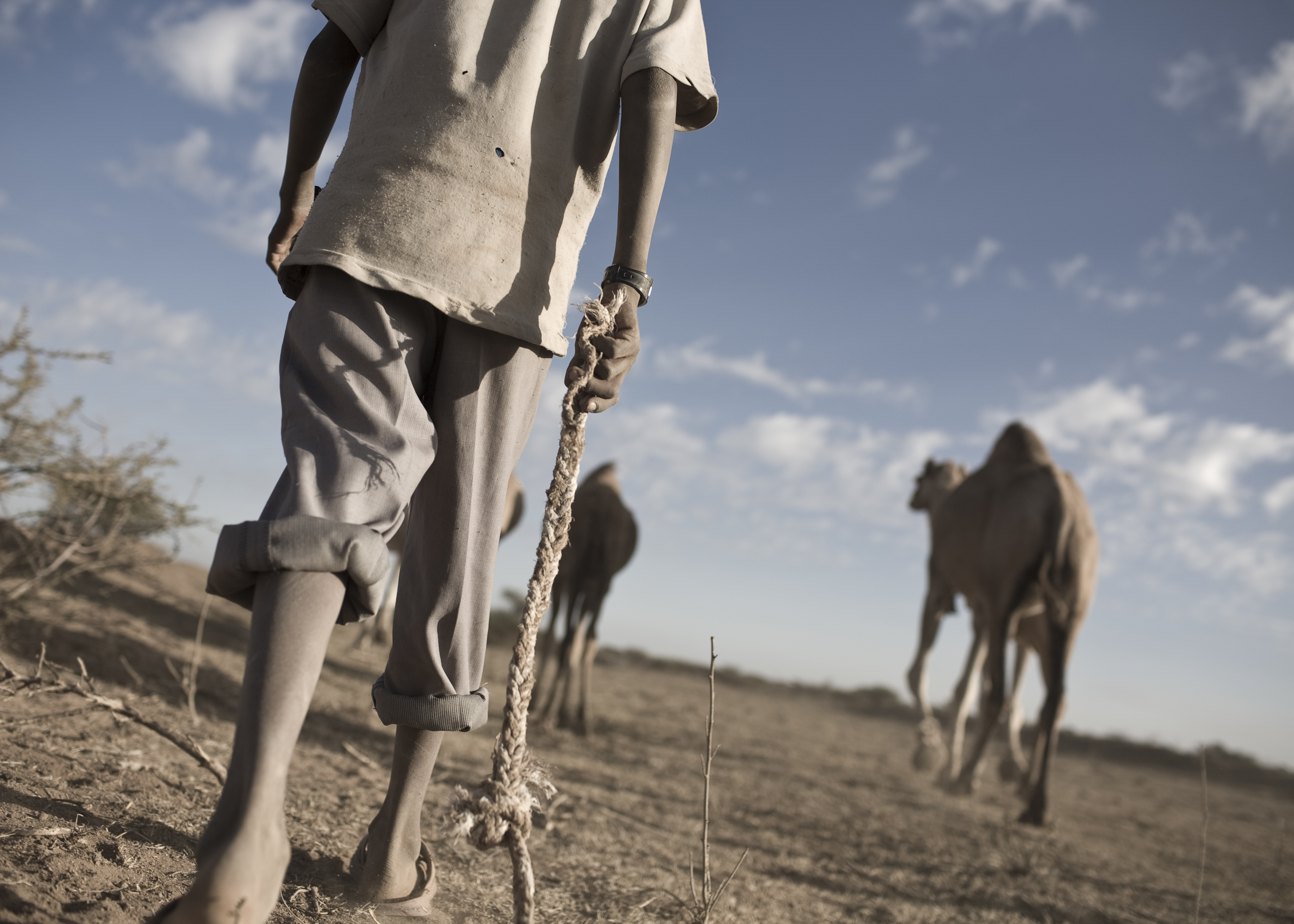

CASE STATUS
Active
HUMAN RIGHTS ISSUES
COUNTRY
What are the issues raised in this case?
As the head of the Somali army’s Fifth Brigade in the 1980s, Colonel Yusuf Abdi Ali (nicknamed “Tukeh”) was a commander in the Somali National Army during the Siad Barre dictatorship, a military dictatorship which ruled the country from 1969 to 1991. This case alleges that during the 1980s, the Somali National Army was responsible for the detention, torture, and deaths of members of the Isaaq community living in the northwestern region of Somalia, known today as Somaliland. Our case alleges that one of the victims, CJA client Farhan Warfaa, was tortured and nearly killed by Col. Tukeh but miraculously survived. In 2005, after Col. Tukeh immigrated to the U.S., CJA filed a case against him alleging his responsibility for the torture and attempted extrajudicial killing of Farhan. Attorneys for both parties will present evidence to a jury in federal court in Alexandria, Virginia from May 13 to 16, 2019.
Who is Farhan Warfaa?
Farhan Mohamoud Tani Warfaa is the plaintiff in this case, and a native of Somaliland (a self-proclaimed independent region that was formerly part of northwestern Somalia), where he lives with his wife and eight children in Somaliland’s capital of Hargeisa. According to the Complaint, in the 1980s Farhan was living with his parents in the village of Jifo Uray in the Gebiley District. Early one morning, Farhan and other men and boys from his village were arrested by Somali National Army soldiers. Farhan was imprisoned at the military base in Gebiley and tortured and interrogated for months. His case alleges that following this period of interrogation and imprisonment, Col. Tukeh shot Farhan five times at point blank range, leaving him for dead. Farhan survived and is now seeking justice for these crimes. Though it has been over three decades since his torture and abuse, Farhan will never forget what happened to him and his community. He hopes this case will both deter others from committing human rights abuses and give courage to fellow survivors.
Who is Col. Tukeh?
Colonel Yusuf Abdi Ali (a.k.a. “Tukeh”) is a native of Somalia and a permanent resident of the United States. Tukeh commanded the Somali National Army’s Fifth Brigade in the late 1980s, giving him authority over the remote northern district of Gebiley. CJA’s case alleges that Col. Tukeh, while serving as commander of the Fifth Brigade, directed and participated in a violent campaign against Isaaq civilians in northwestern Somalia. When Siad Barre was eventually overthrown in 1991, Tukeh fled to Canada and later became a permanent resident of the United States, where he had lived since 1996. He currently lives in Fairfax, Virginia.
Why wasn’t this case filed in Somalia or Somaliland?
After the fall of the Barre regime in 1991, Somalia plunged into chaos with no effective government. To this day, there is still no functional justice system where a case against Col. Tukeh could be brought. In recent years, Somaliland—while still unrecognized by the international community—has undertaken a transitional justice effort to re-establish the rule of law. This experiment in democracy remains fragile and cannot yet offer an avenue to bring human rights abusers from the civil war era to justice.
What is the legal framework for this case?
The case brings civil claims under the Torture Victim Protection Act (TVPA). The TVPA, passed in 1991, allows U.S. federal courts to hear claims against individuals who, acting under the actual or apparent authority of a foreign nation, committed torture or extrajudicial killing. Under the TVPA, both U.S. citizens and non-citizens may file suit. The perpetrator must be served with the lawsuit while they are present in the U.S. in order for a court to have jurisdiction over the individual.
Why is this a civil suit and not a criminal prosecution?
One key reason is that there are few avenues for criminal accountability for individual perpetrators of human rights abuses during the Siad Barre regime. The Rome Statute, the treaty establishing the International Criminal Court (ICC) in The Hague, entered into force in 2002, years after the events leading up to this case took place. Other special war crimes or genocide tribunals, such as those in former Yugoslavia, Rwanda and Cambodia, were only created for specific conflicts and crimes in those countries. Domestic accountability is also limited. Somalia has never been able to develop a complete justice system that could bring such charges, nor has a special tribunal been established to adjudicate crimes committed during its civil war. Finally, the U.S. doesn’t have criminal jurisdiction over the events that played out in Somalia in the 1980s. As a result, the only viable path for accountability is a civil lawsuit against Col. Tukeh.
Why did this case take so long to go to trial?
This lawsuit was filed in 2004. In 2007, the U.S. District Court for the Eastern District of Virginia administratively closed the case, pending determination of immunity issues raised in another CJA case, Yousuf v. Samantar, which applied to Farhan’s case as well. Farhan’s case was reopened in 2011, only to be stayed a second time pending the Supreme Court’s decision in Kiobel v. Royal Dutch Petroleum Co. The court finally reopened the case in 2014 and denied Col. Tukeh immunity from suit for torture and attempted extrajudicial killing, a decision subsequently upheld by the Fourth Circuit Court of Appeals. The Supreme Court refused to hear Col. Tukeh’s appeal, and the case returned to the district court for trial. Fifteen years after Farhan’s case was first filed, it is now going to trial this May.
Have there been any other cases involving human rights abuses from the Siad Barre era?
This case is one of three cases filed by CJA relating to abuses committed by the Siad Barre regime in Somalia. CJA won cases against the former Prime Minister and Minister of Defense, Mohamed Ali Samantar, and the former Chief of Investigations of the infamous National Security Service, Abdi Aden Magan. These three cases represent the first international effort to obtain justice for victims and survivors of the Siad Barre regime.
For more information about human rights abuses during the Somali civil war, see reports by Africa Watch and Robert Gersony for the U.S. State Department.
Are there any similar cases filed in the United States that have provided justice for victims?
CJA has successfully brought a number of cases in U.S. courts seeking justice for human rights abuses that occurred in Bosnia, Chile, China, and El Salvador, to name a few examples. The following are two examples of CJA victories:
- In our case against Somalia’s former prime minister and minister of defense, General Mohammed Ali Samantar, a U.S. court awarded Somali victims and survivors $21 million in damages. Samantar had presided over countless killings and torture of civilians in the 1980s. The case was the first to ever hold a Somali official accountable for human rights crimes committed under the Siad Barré regime. It also established the precedent that foreign officials cannot claim immunity for acts of torture, extrajudicial killing, or other universally recognized human rights violations.
- In 2016, a jury found Lieutenant Pedro Barrientos Nuñez responsible for the torture and murder of Chilean singer Victor Jara and awarded Jara’s family $28 million. In 1973, Jara, famous for his outspoken messages on social equality, was tortured and murdered along with hundreds of others by the military under the Pinochet regime. Former soldiers finally broke their silence in 2009, and a number of officials were indicted in Chile. However, because Barrientos had moved to the U.S., the Chilean courts could not reach him. The decision in CJA’s case, along with the prosecutions in Chile, have finally provided judicial acknowledgement of the government’s role in his murder.
